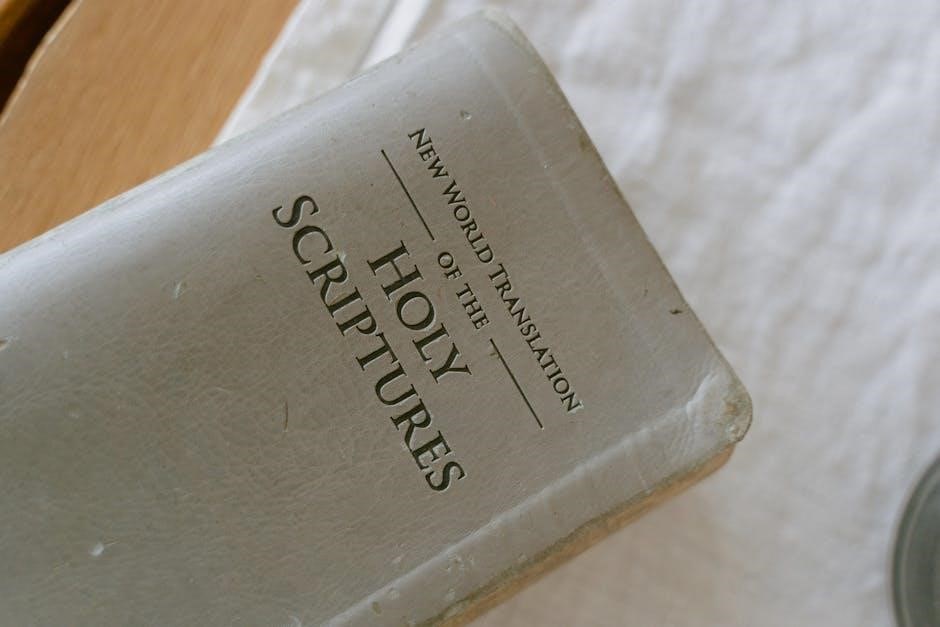
guiding belief crossword clue
Crossword puzzles are engaging word games with a grid and clues. The ‘guiding belief’ clue helps solvers navigate through complex patterns and hidden meanings, challenging the mind.
1.1. Definition and Purpose of Crossword Clues
Crossword clues are essential hints that guide solvers in filling the puzzle grid. They provide definitions, riddles, or wordplay to help identify the correct answers. The purpose of clues is to challenge solvers’ vocabulary, logic, and pattern recognition. For example, the “guiding belief” clue might test understanding of phrases with multiple meanings or hidden connections. Clues are designed to be both informative and misleading, making puzzles engaging and intellectually stimulating.
1.2. The Role of “Guiding Belief” in Crossword Solving
“Guiding belief” serves as a foundational hint, aiding solvers in deciphering complex clues. It often represents a central idea or concept that helps navigate the puzzle’s structure. This belief guides the solver’s thought process, encouraging critical thinking and pattern recognition. By understanding the “guiding belief,” solvers can better interpret related clues, enhancing their problem-solving skills and overall enjoyment of the crossword experience.

Understanding the “Guiding Belief” Crossword Clue
The “guiding belief” clue represents a central idea or concept that links various parts of the puzzle. It often serves as a thematic anchor, helping solvers connect seemingly unrelated clues and uncover hidden meanings. This clue is crucial for navigating the puzzle’s structure and ensuring a cohesive solving experience.
2.1. Breaking Down the Phrase “Guiding Belief”
“Guiding belief” is a two-word phrase that holds significant crossword relevance. The term “guiding” suggests direction or influence, while “belief” refers to principles or ideas. Together, they imply a central concept or theme that steers the puzzle’s structure. In crosswords, this phrase often hints at a unifying idea or a clue that ties together multiple answers, helping solvers navigate the grid more effectively. Analyzing both words separately and together can reveal hidden connections and themes, making it easier to decipher the puzzle.
2.2. Possible Interpretations and Meanings
The phrase “guiding belief” can have multiple interpretations in crossword contexts. It may refer to a core principle or philosophy that directs actions or decisions. Alternatively, it could hint at a central theme or idea within the puzzle itself. Solvers might consider both literal and metaphorical meanings, such as religious beliefs, moral values, or even a cryptic clue pointing to a specific word or concept tied to the puzzle’s overall design.
Solving Strategies for Crossword Puzzles
Start with easy clues, use wordplay, and eliminate wrong answers. Analyze patterns and hidden meanings to uncover the “guiding belief” clue, enhancing your problem-solving skills.
3.1. Analyzing Clues for Hidden Meanings
Analyzing clues for hidden meanings is crucial in crosswords. Look for wordplay, anagrams, or double meanings. The phrase “guiding belief” might hint at a core idea or principle. Study context and patterns to decode tricky clues, as subtle hints often reveal the answer. Practice identifying these layers to improve your solving skills and uncover the intended solution effectively.
3.2. Using Wordplay and Anagrams
Wordplay and anagrams are key techniques in crosswords. Clues often involve puns, homophones, or rearranged letters. For “guiding belief,” consider anagrams like “belief” or “guide.” Wordplay may hint at phrases like “core belief” or “moral compass.” Practice recognizing these tricks to crack tough clues, as they often lead to clever, unexpected answers hidden in plain sight.
3.3. Eliminating Incorrect Answers
Eliminating incorrect answers involves cross-referencing letters and considering word lengths. For “guiding belief,” start by identifying letters from intersecting clues. If a word doesn’t fit logically, discard it. Use dictionaries to verify meanings and ensure accuracy. This methodical approach narrows down possibilities, making it easier to find the correct answer, often a common term like “core belief” or “moral compass.”
Common Themes and Patterns in Crosswords
Crosswords often feature recurring themes like wordplay, anagrams, or themed puzzles. The “guiding belief” clue fits into patterns exploring philosophy or ethics, adding depth to the puzzle.
4.1. Recurring Themes in Crossword Construction
Crossword puzzles often incorporate recurring themes, such as wordplay, anagrams, or themed grids. The “guiding belief” clue aligns with philosophical or ethical themes, challenging solvers to think critically. Constructors frequently use these patterns to create depth and engagement, ensuring puzzles remain both entertaining and intellectually stimulating for enthusiasts of all skill levels.
4.2. Identifying Patterns in Clues
Crossword clues often follow predictable patterns, such as wordplay, anagrams, or double meanings. The “guiding belief” clue might hint at philosophical terms or concepts. Recognizing these patterns helps solvers decode meanings faster; Common tactics include puns, reversals, or hidden messages, making crosswords both challenging and rewarding. Identifying these clues requires attention to detail and a keen understanding of language nuances.
Tips for Beginners
Start with easy clues to build confidence. Use dictionaries for unfamiliar words and focus on wordplay. Eliminate wrong answers to narrow down options. Stay patient and persistent.
5.1. Starting with Easy Clues
Beginners should start with straightforward clues to build momentum. Easy clues often have direct answers, helping solvers gain confidence. Focus on short words or common phrases. Use dictionaries to find meanings and look for patterns. As skills improve, gradually tackle more complex clues. This approach ensures a smooth learning curve and keeps the puzzle enjoyable rather than overwhelming. Patience is key to mastering crosswords.
5.2. Building Vocabulary for Crossword Success
Expanding your vocabulary is crucial for crossword mastery. Regularly use dictionaries, thesauruses, and flashcards to learn new words. Focus on prefixes, suffixes, and word roots to decipher unfamiliar terms. Reading widely exposes you to diverse terminology. Consistent practice and memorization will enhance your ability to tackle complex clues and improve your solving speed over time.

Advanced Techniques for Experienced Solvers
Experienced solvers leverage crossword databases for research, master cryptic clues, and excel at anagrams. These advanced strategies refine their skills and enhance problem-solving efficiency significantly.
6.1. Using Crossword Databases for Research
Crossword databases are invaluable for experienced solvers, storing clues, answers, and puzzle grids. They help identify patterns, track recurring themes, and reveal common anagram techniques. By analyzing past puzzles, solvers can refine their strategies, enhance efficiency, and master complex clues like “guiding belief.” These tools are essential for advancing skills and staying competitive in crossword solving.
6.2. Mastering Cryptic and American-Style Clues
Mastering both cryptic and American-style clues enhances your crossword-solving prowess. Cryptic clues rely on wordplay like anagrams, double definitions, and reversals, while American-style clues often use puns and indirect hints. For “guiding belief,” understanding these techniques is key, as they often involve layered meanings. Practice with both styles sharpens your ability to decode complex clues, improving your overall problem-solving skills and vocabulary retention.

Tools and Resources for Solving Crosswords
Online dictionaries, thesauruses, and crossword apps provide invaluable assistance. These tools help solvers quickly find definitions and synonyms, making the process efficient and enjoyable.
7.1. Online Dictionaries and Thesauruses
Online dictionaries and thesauruses are indispensable tools for crossword solvers. They provide quick access to word definitions, synonyms, and antonyms, helping to decode clues like “guiding belief.” Websites like Quizlet and GitHub repositories offer additional resources, such as flashcards and crossword databases, to aid in understanding complex terms and patterns. These tools enhance problem-solving efficiency and accuracy, making them essential for both beginners and experienced solvers.
7.2. Crossword Puzzle Apps and Software
Crossword puzzle apps and software offer interactive solvers, daily puzzles, and crossword databases. These tools enhance solving skills by providing clues, patterns, and research capabilities. Popular among both casual and competitive solvers, they aid in decoding complex clues like “guiding belief.” Features include timers, hints, and progress tracking, making them essential for improving speed and accuracy in crossword solving.
The Evolution of Crossword Puzzles
Crossword puzzles were first introduced in 1913 by Arthur Wynne. They gained popularity in the 1920s, becoming a cultural phenomenon. Over time, grids became symmetric, and clues evolved in complexity, leading to modern innovations like the “guiding belief” clue.
8.1. Historical Development of Crosswords
Crossword puzzles originated in 1913 when Arthur Wynne created the first one for Fun. Early crosswords were simpler, with less emphasis on themes. The 1920s saw their rise in popularity, becoming a cultural phenomenon. By the 1940s, crosswords were standardized, and clues became more sophisticated. The “guiding belief” clue reflects modern innovations, blending traditional wordplay with contemporary linguistic twists, showcasing evolution in puzzle design.
8.2. Modern Innovations in Crossword Design
Modern crosswords incorporate advanced techniques like themed grids and interactive digital formats. Constructors now use online tools and social media to share puzzles. The rise of crossword apps and databases has streamlined creation and solving. Innovations like cryptic clues and American-style wordplay blend tradition with modern creativity, enhancing engagement and accessibility for solvers worldwide.

The Community and Culture of Crossword Enthusiasts
Crossword enthusiasts form a vibrant community, sharing clues and strategies online. Forums and groups foster collaboration, while constructors engage solvers with creative puzzles, nurturing a shared passion.
9.1. Online Forums and Groups
Online forums and groups dedicated to crossword puzzles foster collaboration and learning. Constructors share daily clues, while solvers discuss strategies and interpretations. These communities provide platforms for feedback, fostering improvement and camaraderie among enthusiasts.
9.2. Competitions and Tournaments
Competitions and tournaments energize the crossword community, offering solvers opportunities to test their skills. Events like speed-solving contests and themed puzzle challenges foster friendly rivalry. These gatherings celebrate problem-solving prowess and inspire enthusiasts to refine their strategies, while also enhancing camaraderie among participants who share a passion for crosswords.
Common Mistakes to Avoid
Common errors include rushing through clues, ignoring wordplay, and guessing without sufficient letters. Avoid overcomplicating simple clues and missing contextual hints that simplify solving.
10;1. Overcomplicating Simple Clues
Overcomplicating simple clues is a common mistake. Solvers often read too much into straightforward hints, assuming hidden meanings where none exist. This stems from stress or overthinking. Stay calm, trust your instincts, and focus on obvious interpretations first. Avoid forcing complex patterns or wordplay unless clues clearly indicate them. Simplify your approach to save time and reduce frustration while solving crosswords.
10.2. Ignoring Contextual Hints
Ignoring contextual hints is a significant mistake in crossword solving. Clues often include subtle directions or wordplay indicators that guide the answer. Overlooking these can lead to incorrect interpretations or prolonged solving times. Always pay attention to phrases like “sounds like” or “type of,” as they provide crucial guidance. Recognizing these hints improves accuracy and speeds up your progress in solving crosswords effectively.
Mastering crossword puzzles, especially clues like “guiding belief,” requires patience, strategy, and practice. Embrace the challenge, enjoy the process, and celebrate the thrill of solving each clue successfully.
11.1. Final Tips for Mastering Crossword Puzzles
To excel at crosswords, especially with clues like “guiding belief,” focus on building your vocabulary, practicing regularly, and staying patient. Start with easier clues to gain momentum, then tackle tougher ones. Use online tools like dictionaries or crossword databases for assistance. Pay attention to wordplay, anagrams, and hidden meanings. Most importantly, enjoy the process and celebrate small victories along the way—it’s a rewarding and enjoyable journey!
11.2. The Joy of Solving “Guiding Belief” Clues
Solving “guiding belief” clues brings immense satisfaction, as they often blend clever wordplay with meaningful insights. The thrill lies in unraveling hidden meanings and connecting seemingly unrelated concepts. Each solved clue feels like a victory, fostering a sense of accomplishment and intellectual growth. This joy is amplified by the mental challenge and the opportunity to expand your vocabulary and pattern-recognition skills, making it a truly rewarding experience.


Leave a Reply
You must be logged in to post a comment.